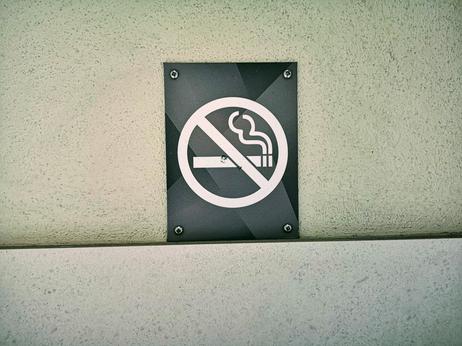As a societal approach to improving health conditions in public settings, many offices, community centers, and restaurants have initiated tobacco and smoking bans on their properties. While public schools, such as elementary and high schools, have banned tobacco products on their educational campuses for years, community colleges across the country are now beginning to follow this health-driven trend.
Banning Tobacco on Community College Campuses
The Growing Trend
Institutions, businesses, and other settings possess the legal right to ban smoking and tobacco use on property grounds because private properties can be governed by owners/managers/leaders. As a result, those who own personal property often have the supreme authority over the rules and regulations of their grounds and boundaries.
On the other hand, community colleges had to earn their right to ban tobacco in 2006, as community campuses are not necessarily “privately” owned properties. In 2006, Katherine McDonald of the Chatham Journal explains, “The General Assembly adopted legislation exempting community colleges from a law requiring public institutions to set aside areas for tobacco use.”
According to McDonald’s investigations, community colleges that have adopted smoke-free and tobacco-free policies include schools such as Asheville-Buncombe Technical, Cleveland, Guilford Technical, Haywood, Pitt, Roanoke-Chowan, Stanly, Wake Technical, and Wilkes Community College.
This video describes the Truth Initiative, which helps community colleges and Historically Black Colleges and Universities (HBCUs) bring tobacco-free policies to the campuses that serve young adults from minority and low-income communities.
Motivations Behind Tobacco-Free Schools
While the trend to ban tobacco on community college campuses is on the rise, McDonald highlights the motivations, precisely behind Central Carolina Community College’s (CCC) tobacco ban. According to McDonald, tobacco was outlawed on the Carolina campus beginning January 1, 2008. The college’s board of trustees initialed CCC’s ban, as members agreed to enforce a 100% “Tobacco-Free Campus Policy,” which orders all campus visitors, students, and staff members to abstain from using tobacco when on the CCC educational site.
As Dr. Bud Marchant, CCC’s college president, supports, “The college is committed to providing its students and employees with a safe and healthful environment […] Many community colleges and other institutions have already gone tobacco-free. This is an important way we can provide a more healthful environment.”
While non-smokers will certainly enjoy CCC’s new tobacco policy, outsiders may question the motives for this new smoke-free statute. According to information from the North Carolina Health and Wellness Trust Fund, tobacco has been identified as the primary preventable cause of early and premature deaths and diseases in the United States. Adding to this fact, approximately 28 percent of 18 to 24-year-olds in the state of North Carolina are reportedly engaging in smoking habits. In an attempt to fight the epidemic of death and disease, particularly among the college-age population group, community colleges, such as CCC, believe that banning smoking on campus will encourage a greater shift towards smoke-free lifestyles. Most significantly, the 18 to 24-year-old age group is the only population base, nationally, in which smoking rates are on the rise; therefore, an effort to decrease this trend is being embraced by community college institutions across the country.
Further supporting McDonald’s report on CCC’s shifts in tobacco policies, Nardy Baeza Bickel of The Grand Rapids Press highlights the similar tobacco-free trend that has evolved at Grand Rapids Community College (GRCC). Beginning on November 20, 2008, students of GRCC could no longer use tobacco products on campus. To spark this shift, campus supporters of the ban have staged a tobacco protest for nearly five months, as students and advocates posted fliers, sent out messages, and argued for their right to a smoke-free campus. In the case of GRCC, students and campus visitors will be forced to abstain from tobacco products in educational buildings, school property, and even their vehicles, as tobacco is banned in the campus parking lots/parking garages.
This webinar, co-hosted by the Association of State and Territorial Health Officials (ASTHO) and the National Association of County and City Health Officials (NACCHO), focused on the implementation and enforcement of tobacco-free policies by different types of institutions, the legal implications, and how you can be involved in the effort.
The Debate: Student Reactions and Pros and Cons
While no precise data reveals the consensus and approval ratings for community college tobacco bans, student opinions are mixed. As Bickel reports, students at GRCC are conflicted, as some believe that the new ban will help improve their unhealthy smoking habits, while others see the ban as an invasion of personal rights.
While national statistics have not been measured, Bickel reveals that in the case of GRCC, “The move was approved by the board in July after administrators studied the issue for a year and after a 3,000-person survey showed 78 percent of employees and 63 percent of students support a smoke-free campus.”
Questions? Contact us on Facebook. @communitycollegereview













